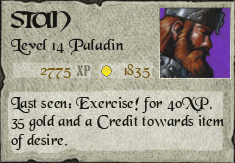A group of hackers wired a bunch of money to a foreign account. Someone hacked into the school's database and gave A's to everyone. Put up a firewall to guard against hackers. What is a hacker? Well, according to the news, entertainment, and most people you talk to, a hacker is a person who circumvents computer security. Works for me.
But one day, a kid on a message board made a post to clarify: crackers are people who break into computers; hackers are people who modify their computer's software to improve performance. Also, hackers don't like that their title is applied to people who do illegal stuff.
Ok, that's cool, too. I guess. I mean, it makes sense -- "cracker" seems to hearken back to safe-cracking, so that's cool. I don't know where "hacker" comes from, but I can accept it. It's nice to have a distinction.
So what do you call them in your fiction? Do you go with definitions, or with common usage?
I bring this up for the benefit of new writers, those who are relatively new to the peer review process. The hacker/cracker issue may not apply to your current project, but I think it exemplifies a general concept I'm just going to call the "proper/common" issue. Now it's story time...
Writing fiction is far different from writing a research paper. I know that should go without saying, but I really want to stress it: Writing fiction is far different from writing a research paper. It is not the same as doing homework.
When I first started my adventures in fiction, I attended a couple writer's groups (Borders in Flint and Auburn Hills, for you Michiganders). One week I invited a friend from my Japanese class to sit in and maybe read something of hers. I read a section from something I had written (it was about eight or ten pages, double-spaced). The feedback I received from the regulars was pretty standard -- You don't have enough description; Your dialogue was good, but you should describe what they're doing; I have no idea where the hell your characters are because you don't describe it very well. I was pleased with the response, because they didn't find anything glaring that destroyed the story.
My friend asked if she could hang on to her copy for a few days. I said that was fine, since I had eight other copies to look over and decide which suggestions to follow. She gave it back to me a few days later, in class.
I think there was more of her writing on that thing than mine.
My first thought was that she spent a lot of time really analyzing the piece, and had written every single complaint and compliment that crossed her mind. That was not the case -- the margins were packed with things like, "incomplete sentence" or "missing words", even "don't start a sentence with 'and'". I was astounded. Not only did she apply the rules of grammar to the narrator, she hit all of the dialogue as well. Each page's margins were overflowing with rules-oriented comments, and the half-blank last page included a long note about how she expected good writers, but that everyone missed all the basic rules of grammar, so she couldn't take them seriously.
I'm not making this up. I still have that copy somewhere, because it was too beautiful to throw away.
The point of all of this is that prescriptive rules of grammar are pretty meaningless in fiction. If the general populace says "hacker," then it makes no sense for the characters in your story to say "cracker" -- unless they are real-life hackers who care about such distinctions. The characters in my story are not going to speak with perfect grammar because no one speaks with perfect grammar. Even my "narrator," who has no discernable personality because the story is told in the third person, will not speak with perfect grammar because he's telling a story. This isn't an academic paper.
Do we still have to put our verbs in the middle of the sentence? Of course -- that's a descriptive rule, whose purpose is to describe how our language already works. To say that we shouldn't end sentences with prepositions is silly -- people do it all the time without creating confusion. That's a rule that was invented by a bunch of dead guys who wanted to sound smarter than everyone else. English worked fine before that rule existed, and it continues to thrive in spite of it.
Write your stories. Damn the rules. Let your characters speak like real people, not textbooks.



4 comments:
Good post. I learned a new word -- Cracker. Sounds like your chum sucked your voice right out of your work. :-)
Hah, yeah, she certainly tried :)
I don't write a lot of pure fiction, preferring instead to blur the line between the autobiographical and the fabricated, but let me inflict my opinion upon you anyway.
I would suggest using "hacker" or any common word in the dialog if it sounds true to your character, and then provide a more precise defination in the narrative.
Something like, "Joe knew the old woman wasn't implying that he was a criminal, but didn't have the heart to correct her."
But that's just me.
Excellent blog by the way.
Big Daddy Diggs in da houuuuuuuuuuuuse!
Post a Comment